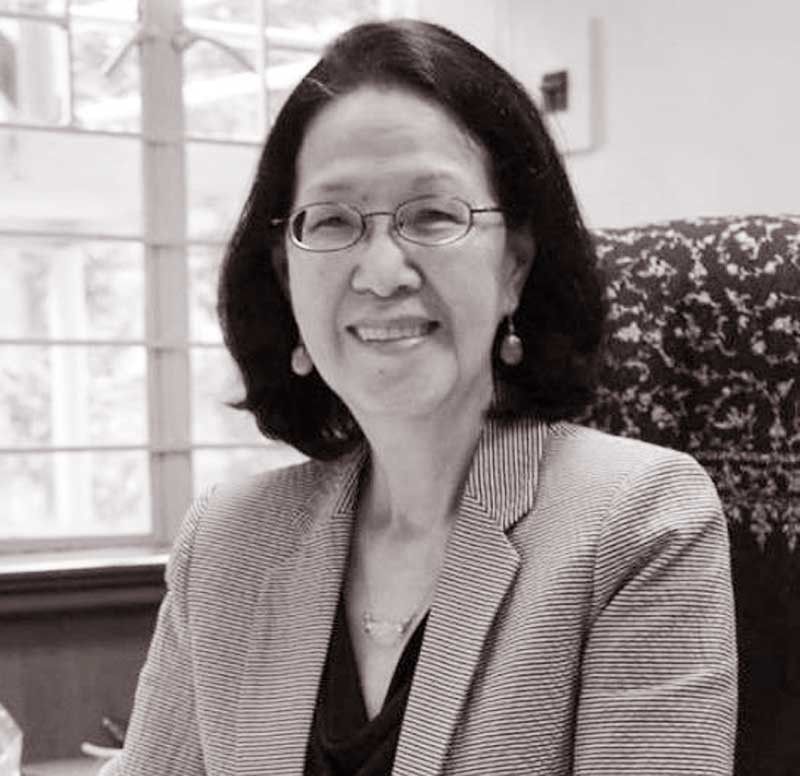The role of humanities and the arts in 21st century education

Students who take for granted that they can find the answer to any question by “googling” it are missing out on one very important skill: the ability to analyze, and to make judgments based on such analysis.
At about the same time that I was invited to offer my insights on the subject of humanities and the arts in 21st century education, my friend, the poet Merlie Alunan, posted a picture of Meryl Streep reading the poem Luzhai by the Chinese poet Wang Wei. Accompanying her on the cello was Yo-Yo Ma. And I thought: Need I say more?
Creating art – which is what the humanities are about – is as normal as breathing. It antedates education. Even untutored peoples produce what we now call “folk art,” and those who produce them are honored as “national treasures.” And so many of the most important events of our lives – birthday parties, weddings, graduations, funerals – happen to the accompaniment of music.
Last May, I read an online article by Mora Morrison about an unusual gift received by all graduating medical students in Scotland since 2014. It’s a pocket-sized anthology of poetry called Tools of the Trade. It includes poems by poet-doctors Iain Bamforth, Rafael Campo, Glenn Colquhoun, Martin MacIntyre, and Gael Turnbull. Response to the book has been so enthusiastic that a third edition is now available in bookstores all over the world, through a collaboration with publisher Birlinn Ltd.
The book is just short of 100 pages and thus handy enough for doctors to keep it in their pockets as they go about their rounds. The project was initiated by two GPs and gained the support of the Royal College of General Practitioners Scotland.
But why poetry?

Morrison quotes the British Poet Laureate, Simon Armitage: “In this world, which is very confusing, poetry is time out…”. She also quotes Dr. John Gilles, one of the book’s editors: “The idea was to have a book of poems to help young doctors understand the broader context of people’s lives, and that people are not just diseases, they are people with diseases… And also to help new doctors look after themselves in the first few years of medical life, because that transition from being a medical student to being a doctor is a very major one.”
Actually, contrary to what some people may think, poetry is not meant to be ornamental. It does not prettify things. In its economy of language and its use of imagery, it actually compresses meaning, and is able to convey it more effectively. To reinforce the book’s effect, Scotland’s Poetry Library has held events based on the works of doctor-poets – including William Carlos Williams – and the University of St. Andrews has released Poems for Doctors, a project involving the production of videos of medical students and doctors reading poems from the book, Tools of the Trade, and even a “poetry slam” (competition of poets reading poetry aloud).
Working with suffering, grief, depression and death every day, doctors must sometimes find themselves asking what the point of all of it is. In poetry, perhaps, they find some answers. Some doctors are not only using the little book as a source of comfort and encouragement for themselves but are sharing some poems with their patients. And some are suggesting to their patients that they might try writing down their feelings by creating poems of their own.
Locally, Vim Nadera, who has served as director of both the UP Institute of Creative Writing and the Philippine High School for the Arts in Makiling, has been working for years with poetry as therapy with children who are terminally ill.
The point I venture to make here is that even in such a specialized field as medicine, poetry can serve an important function. Literature, and the humanities as a whole, are even more important now than they used to be given the kind of world we live in.
Students who take for granted that they can find the answer to any question by “googling” it are missing out on one very important skill: the ability to analyze, and to make judgments based on such analysis. In the book, You Can Do Anything: The Surprising Power of a “Useless” Liberal Arts Education (2017), George Anders has argued that the digitalization of urban post-modern life does not make literature less important, but rather, more important. “The more we automate the routine stuff, the more we create a constant low-level hum of digital connectivity, the more we get tangled up in the vastness and blind spots of big data, the more essential it is to bring human judgment into the junctions of our digital lives.”
In Time (Oct. 7, 2013), John Meacham asserted that because it stimulates creativity, sharpens critical powers, and enables him to see the bigger picture, literature makes the graduate more, not less, competitive in the global market. “There is little argument over the human and economic utility of a mind trained to make connections between the seemingly disparate elements of reality. The college graduate who can think creatively is going to stand the greatest chance of not only doing well but doing some good, too.”
* * *
The author is Director of the University of Santo Tomas Center for Creative Writing & Literary Studies, and Professor Emeritus of the University of the Philippines Diliman. She has published more than 40 books, including novels, short fiction, creative nonfiction and literary criticism, many of which have won national literary awards, including the Palanca Grand Prize for the Novel and the Gawad Balagtas given by UMPIL. She has worked as a writer, editor and teacher in Bangkok, Seoul, Yangon and New York City. Today she teaches graduate classes in Creative Writing and Literature at UP and UST.
- Latest


























 Partner
Partner